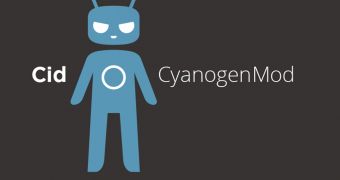The first official CyanogenMod 10 builds are now available for all interested users to download and install on their smartphones.
Pushed out as CyanogenMod 10 M1 builds, these are only experimental builds, the team behind the open-source project notes.
The release is meant to put an end to the emergence of unofficial builds mainly due to the fact that these are lacking the required quality.
“Since we are open-source, we absolutely encourage it! Unfortunately, the quality of unofficial builds can vary, and we are serious about quality,” the team explains.
“Starting now, we are rolling out our M-Series releases. M-Series builds will be done at the beginning of every month. We did a soft freeze of the codebase for the last week, blocking new features in order to stabilize.”
Nightly builds are available for download as well, yet users who are looking forward to install more stable software on their devices should go for the ROMs included in the M-Series.
One thing that users should keep in mind is that the M-Series builds will all have the “Experimental” tag attached to them.
“The filename will include the date stamp as well as the M version. These builds should be stable enough for daily use, and we encourage feedback and bug reports,” the team explains.
The newly released M1 build comes with support for a nice range of handsets, including Galaxy Nexus GSM (maguro), Galaxy Nexus VZW (toro) and Galaxy Nexus Sprint (toroplus), as well as Nexus S (crespo) and Nexus S 4G (crespo4g).
It arrived on other devices too, including Galaxy S2 GT-I9100G (i9100g), Galaxy S (galaxysmtd), Galaxy S B (galaxysbmtd), Captivate (captivatemtd), Galaxy S3 Sprint (d2spr), Galaxy S3 VZW (d2vzw), Galaxy S3 AT&T (d2att), Galaxy S3 TMO (d2tmo), Galaxy S3 US Cellular (d2usc), Galaxy Note AT&T (quincyatt), Google Nexus 7 (grouper), Sony Xperia Acro S (hikari), and Sony Xperia S (nozomi).
Those who would like to get the new CyanogenMod 10 M1 builds should head over to the Get.CM website. Additional info on the software, along with specific installation instructions can be found on the CM Wiki, as well as on the official CM forums.

 14 DAY TRIAL //
14 DAY TRIAL //